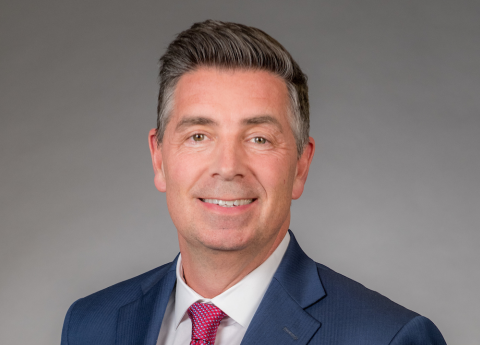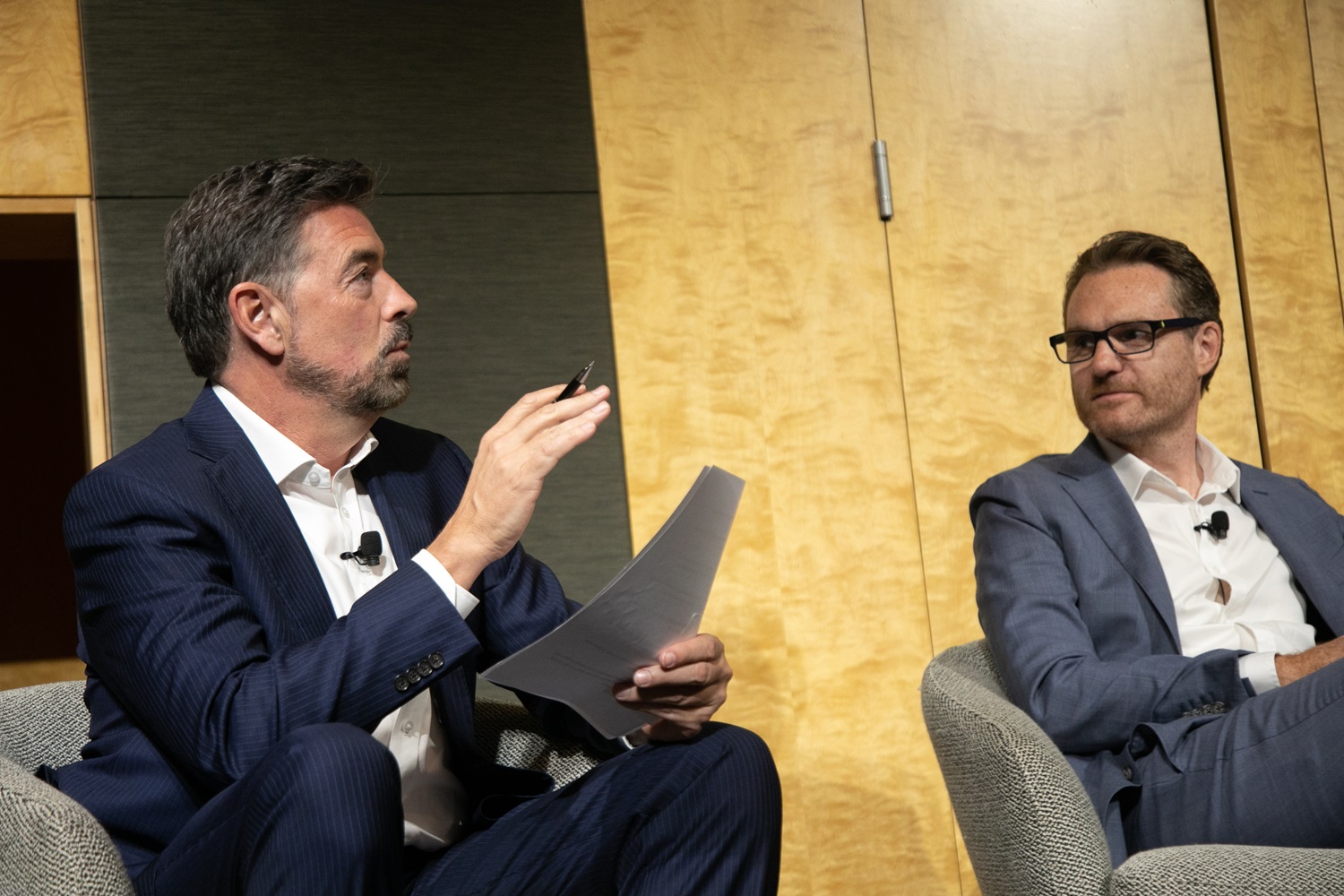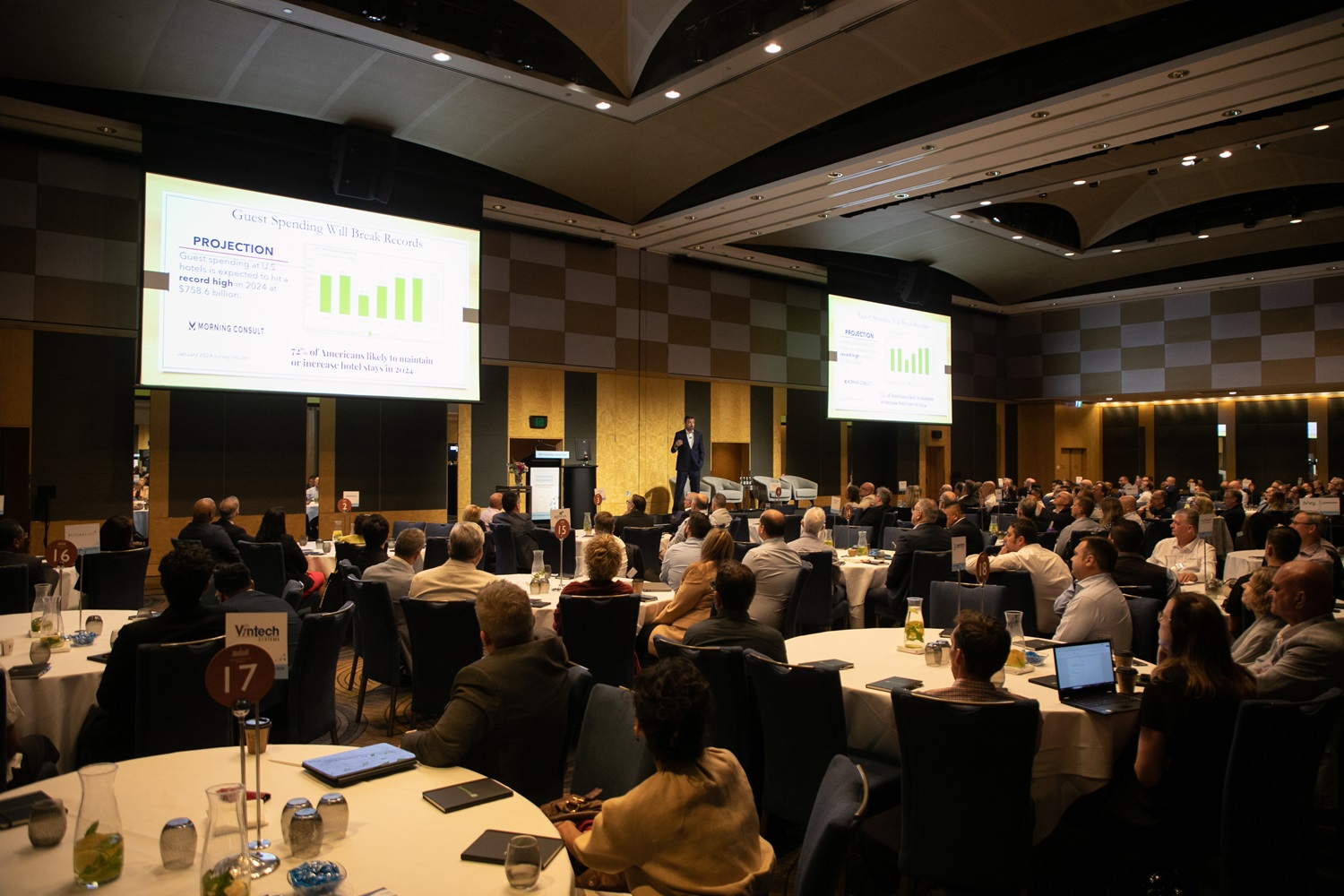
Chip Rogers opens up on Airbnb, AHLA, and the future of hospitality
Exclusive interview: A candid discussion with Chip Rogers, former President and CEO of the American Hotel & Lodging Association (AHLA)
I had the privilege of sitting down with William “Chip” Rogers, former President and CEO of the American Hotel & Lodging Association (AHLA), during his appearance last week at Ted’s Technology Summit 2024, held in the Fullerton Hotel, Sydney.
Rogers, who recently concluded his remarkable tenure as President and CEO of the American Hotel & Lodging Association (AHLA), shared insights into his time there, the future of the hotel industry, and his perspectives on the challenges posed by short-term rental platforms like Airbnb.
Read the summer print edition of AccomNews HERE
While President and CEO of AHLA, Rogers achieved significant milestones for the industry. Under his leadership, AHLA received prestigious awards and recognition, including being named one of the “100 Associations That Will Save the World” by ASAE, and received the White House Presidential Award for its commitment to America’s workers. Extending his influence beyond AHLA, Rogers served on the board of directors for prominent organisations like the United States Travel Association, and the California Hotel & Lodging Association.
Before joining the hospitality industry, Rogers served in the Georgia General Assembly. He was elected to office six times and was unanimously elected twice to serve as Senate majority leader.
This extensive experience in politics provided Rogers with a unique perspective on addressing hotel industry challenges.

Drawing parallels between his experiences in politics and hospitality, he considers servicing guests and being of service to constituents to be the same thing. “What is it you want, and how can I provide that to you, is the same mentality,” he said.
Calling on his experience of sitting on the other side of the desk, “being lobbied” was fundamental to his role at AHLA, which would build a team that would effectively represent and lobby on behalf of the hotel industry.
He said: “It’s vital to know what to bring to the table to connect with lawmakers and it is not always about numbers — it’s usually stories that connect people the most. You must be able to communicate how a policy will impact real people.”
But he says the most important thing is to make sure you have a united industry.
“I recall my days as a lawmaker,” he said, “when people would ask for my help on a certain issue but if they hadn’t already lined up exactly what they needed and won the support of their own industry I would send them away to go figure it out.”
Rogers has three key pieces of advice for associations trying to bring forth change:
- Be united.
- Know exactly what you are asking for.
- Make sure everyone agrees.
And he says if lawmakers do what you ask, make sure it helps the most people possible.
Navigating the Airbnb conundrum
Amid his successes at AHLA, there is an issue that weighs heavily on Rogers’ mind and that he was keen to discuss – the rise of short-term rental platforms like Airbnb. He says these operations have caused serious issues on a global level and it’s a complicated problem to resolve.
He is passionate when he talks about the challenges faced by traditional hoteliers and regulated businesses in the wake of Airbnb’s expansion, and he emphasises the need for regulation, “not only to ensure a level playing field in the hospitality industry but also to protect residential communities”.
Globally, Rogers says, Airbnb causes “significant issues” and that “no one has figured out what to do about Airbnb because the platform goes out of its way to NOT comply when challenged, especially after becoming a public company as it now has the resources to fight back”.
In Australia alone, “250 thousand short-term rental units representing from two and a half to three percent of what was intended to be residential units have been moved into a commercial product, often competing directly with hotels,” he said. This has left many organisations grappling with the idea of what to do, because these short-term rentals are changing the marketplace in a significant way.
Rogers advocates for holding platforms like Airbnb accountable with a sense of urgency and conviction, reflecting his unwavering commitment to the well-being of the industry and its stakeholders.
“You absolutely must regulate the platform. If you do not hold the platform accountable it will be impossible to enforce the regulations.”
And Rogers doesn’t just talk the talk…
AHLA is a member of GlobalReformbnb – an international association of hotel associations from cities, regions, destinations, and national and/or supranational levels. Together, they work globally in a joint and coordinated manner to create synergies and find solutions to the issue of Short-Term Rental (STR) supply.

He said: “15 years ago, Airbnb was more about ‘Ma and Pa’ operators letting out a spare room but in no way is that what it is today. Now it is a massive global corporation in the hospitality space, competing with hotels directly on a daily basis and doing so with a completely different set of rules.
“With almost no regulation and when legislation does exist, it’s almost impossible to ensure compliance.
“When local governments do pass legislation, they do not have the workforce to track down every single owner to figure out who to go after when a property is in violation.
“For 20 years in the USA, city after city has tried to find a way to stop the proliferation of Airbnb and to stop residential houses from turning into party houses.”
Regulatory efforts, though, can be successful.
In New York City, Rogers explained, targeted enforcement led to a drastic reduction in short-term rentals. In three months from enforcement, the number of short-term rentals dropped by 83 percent!
Now RevPAR in NYC is at the highest in history and housing is more accessible for firefighters, teachers, nurses and hospitality staff.
“The benefits to hotels and regulated hospitality business is enormous if you can successfully regulate,” he said.
Other hotel industry challenges
Rogers says in the USA, apart from owner-operators issues like rising insurance costs, labour shortages are by far the biggest challenge.
“There are not enough people and a massive turnover of hospitality staff, with the average length of stay for housekeepers six months,” he said. “There is a gap of six million more jobs than people looking for work.
“Labour shortage is a global problem. People don’t consider hospitality when building a career and this needs to change. The industry needs to create higher retention rates.”

Trends and predictions
During the COVID-19 pandemic there was an explosion of people vacationing but almost no business and events. Currently, leisure travel has tapered off, but business travel is expanding.
In most hotels occupancy levels are up (and rising) but staffing gaps remain, so what is filling the gap? Rogers says technology is and hotels need to invest.
And with so many guests now working from hotels, Rogers says it’s basic but absolutely essential to provide fast and accessible wifi.
Sustainability is another important trend according to Rogers, “you must take sustainability seriously and the industry needs to figure out a way to do third-party certifications. Travellers are making conscious purchasing decisions based on sustainable practices – and for corporate travel, this will be mandated.”
Finally he asks: “How can we, as an industry stand for something that is important and makes a difference?
Future aspirations
Our conversation turned towards personal reflections, and he spoke with introspection. Not yet sure of where his next step will lead him, Rogers is taking some time off.
Reflecting on his tenure at AHLA, he expressed gratitude for the opportunity to work alongside dedicated individuals and make a positive impact on the industry. However, he is very open to returning to this industry because he says, “the people are the best”.
Amid the uncertainty of what lies ahead for his own career, he remains steadfast in his belief that true fulfillment comes from loving what you do and the people you do it with. His message to aspiring professionals echoed a timeless truth – find joy in your work, and success will follow…

A shared passion for travel and cuisine
Closing the interview on a lighter note, Rogers shared his love for travel and good food. With a gleam in his eye, he spoke of his fondness for beach destinations like the Greek Islands and Portugal, eagerly anticipating a future return to Australia and possibly a trip to experience Queensland’s beaches. And while he confessed to never trying Kangaroo meat, his appreciation for Australia’s delicious seafood is a testament to his love for culinary delights.
As he embarks on a new chapter, AccomNews is thrilled to have shared this conversation with Chip Rogers and looks forward to the potential of him continuing his legacy in the world of hospitality.
Update March 21, 2024, Just days after this interview Rogers shared that he is starting a new position as Special Advisor at Ervin Graves Strategy Group.
Find out more about the No Room for Trafficking the AHLA Foundation awareness HERE
Mandy has over 17 years of accommodation and tourism industry writing experience and is Editor of AccomNews & Resort News, Publisher of SchoolNews & Director of Multimedia Pty Ltd. She is a retired registered nurse with a 25-year NHS career that followed a few unforgettable years in hotel housekeeping.







